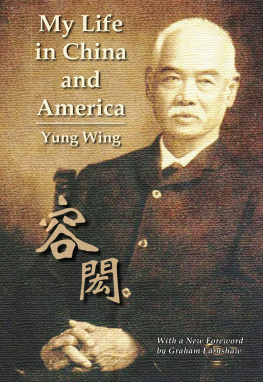
WALK WITH US
How The West Wing Changed Our Lives
Editor: Claire Handscombe
Cover Design: Kerry Ellis
Editorial Services and Interior Design:
Morning Rain Publishing Services
Publisher: CH Books
Copyright 2016 Claire Handscombe
Although every precaution has been taken to verify the accuracy of the information contained herein, the editor and publisher assume no responsibility for any errors or omissions. No liability is assumed for damages that may result from the use of information contained within.
All rights reserved.
Published in the United States of America.
No part of this book may be reproduced in any form or by any electronic or mechanical means including information storage and retrieval systems, without permission in writing from the editor. Thank you for respecting the hard work of this editor and the contributors to this anthology.
For Aaron Sorkin,
to whom I owe so very much

Contents

How The West Wing Changed Us
by Claire Handscombe
F or one fan, it started like this: living in Japan, she was desperate for something in English to watch. Anything. The something she found lying around her apartment happened to be a box set of West Wing DVDs. A few moments in, she hit pause. Did you see how long that shot was? she asked her husband.
It blew me away, she says now, speaking with awe.

I ts been more than fifteen years since The West Wing first graced our screens. In 1999, we were worrying about the Millennium Bug, paying $700 for DVD players, and using pagers. When we talked about the Congressional Facebook, it was without a hint of irony or any reference to a website that is now a ubiquitous part of life. 9/11 had yet to cast a shadow over the world and cause America to deeply re-evaluate its own identity.
And yet, the show continues to have an impact that is arguably unique. If you live or work in DC, references to it are inescapable. People have walked down the aisle to the theme music. Or theyve named children, pets, GPS systems, and even an iPhone app after the characters. Or theyve started Twitter accounts as the characters to continue the storyline and comment on current political events. Or they credit it for closer relationships with their family members or a way out of depression.
The West Wing was unlike anything that had aired on television before. Witty, fast-paced, and intelligent, it followed the lives of White House staffers, in much the same way as, for example, ER follows the lives of doctors. Created by Aaron Sorkin, it refused to talk down to its viewers. Instead, the show drew them into a complex world that they often knew nothing about, and somehow made it mesmerising.

W hen Sarah McConnell [1] unwrapped her DVDs, half-way across the world, she fell in love. On some level, hers is a story that has been replicated time and time again down the years since The West Wing s emblematic drum roll first began ringing out from our televisions. At the time, she loved her consulting work, but as she watched The West Wing , she became insanely jealous of the characters. Here were people who were competent, capable, driven, and incredibly human. They were who she wanted to be. She wanted more from life. She wanted to contribute to the world.
Im a lawyer, says Josh Lyman in one episode. Everybody heres a lawyer. Something clicked in Sarahs brain. She, too, could get a law degree, and maybe one day work at the White House. She already had a Masters and an MBA, as well as a (thankfully supportive) husband. It took her a few years to make the transition to law school, but she made it to the University of California, Davis, and as part of her studies was offered the chance to apply for an internship at the White House.

O n Sarahs first day of orientation, the new interns were asked a question: How many of you would say that The West Wing is your favourite show? When only about a quarter of the people raised their hands, the orientation leader responded, It used to be everybody.
And Ill bet, Sarah says, and this is just my speculation, that if you go now, that its probably everybody again. But I was there at some weird in-between time. The West Wing had not been released on Netflix, and most White House internsthe majority in their early twentieshad been too young to watch it when it was on television.
By contrast, Jay Carney, the White House Press Secretary from 2011 to 2014, was in his early thirties when the show started airing in 1999. His tweet to Allison Janney, who played his fictional counterpart on The West Wing , delighted fellow fans. He welcomed her to Twitter, and asked if she would teach him to lip-sync the Jackal, as she does in the show.
The flurry of Twitter excitement was possibly even greater in January 2014 when Jay Carney reunited two of the shows actors, Bradley Whitford and Joshua Malina, for a sketch to promote the White Houses upcoming Big Block of Cheese Day, itself an idea taken from the show. In 1837, President Andrew Jackson published an official invitation for the masses to drop by for a piece of a 1400-pound block of cheese and to mingle with high-level officials. In the spirit of this, from time to time, Aaron Sorkins White House opened its doors to ordinary people with questions to ask and projects for which to lobby, like a wolves-only highway, or a switch to the Peters Projection map, which provides a more correct understanding of the size of countries relative to each other.
The West Wing taught its viewers things of political and social importance, like the relative size of those countries. Even without the retrospect from which we now benefit, people knew of the shows effectiveness when it came to getting a message across. In an interview at Cambridge University in 2013, Bradley Whitfordwho won an Emmy for his portrayal of the brilliant and wounded Deputy Chief of Staff, Josh Lymanexplained, I would get lobbied by lobbyists when I went to Washington. They wanted to get their particular issues on the show because we could get twenty-one million people to watch a forty-six-minute show where you went through, basically, the pros and cons of whether or not the decennial census should be done by actual polling or computer modelling. He added with his trademark dimpled grin, And, you know, Rob Lowe got laid. In other words, it was entertaining too. Not to mention aesthetically pleasing.
Next page












